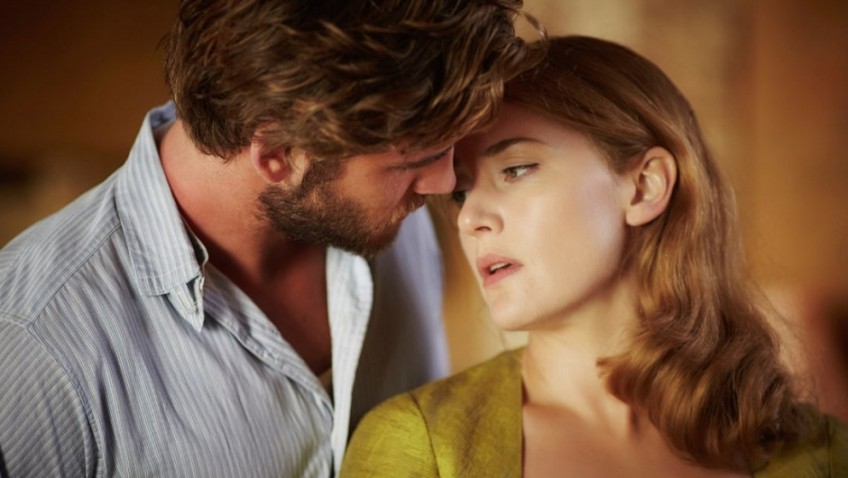Joyce Glasser reviews The Dressmaker
As the title, director, largely female cast and the importance of fashion in the plot might suggest, The Dressmaker is a decidedly feminine movie. Based on Rosalie Ham’s novel, the film is directed by Jocelyn Moorhouse (How to Make an American Quilt, Proof) and stars Kate Winslet and Judy Davis. Moorehouse co-writes the script, with her husband, the marriage-minded P.J. Hogan, who wrote Muriel’s Wedding and directed My Best Friend’s Wedding. There’s a major marriage subplot in The Dressmaker, to be sure, but for cursed dressmaker Myrtle ‘Tilly’ Dunnage (Winslet) revenge, not marriage, is the order of the day.
The film, set in small-town Australia, 1951, begins more like a period film noir than a Western, when a stranger shows up in town hell-bent on revenge. It quickly turns into would-be black comedy, before suddenly, just after the half-way mark, falling apart completely and losing any semblance of plot let alone humour.
Myrtle Dunnage, known as ‘Tilly’, returns unannounced to her hometown of Dungatar, a striking, woman overdressed in a Dior-inspired outfit with bright red lipstick and a confident step; very different from the young, teary-eyed, country girl who had left in disgrace 20 years earlier. She walks up the hill to a ramshackle house and surprises her cantankerous, weather-beaten mother Molly (Judy Davis) buried under the covers of an untidy bed. Around Molly are twenty-years of clutter and layers of dirt. Molly pretends not to recognise her daughter who was sent away at age 10, after false accusations that she killed a boy in her school class with a blow to his head
Myrtle has returned to care for her mother and to use her acquired fashion skills to reveal the truth behind the boy’s murder and to exact revenge. For Myrtle has become a talented dressmaker, trained in Paris by Madeleine Vionnet to make women look and feel beautiful. While Myrtle is reconciled with Molly, she learns that the cross-dressing local police Sergeant (Hugo Weaving) was black mailed into sending her off without an investigation; that the school teacher, Beulah Harridiene (Kerry Fox), was a false witness; and that everyone, in particular, the loathsome, sexist Councillor Evan Pettyman (Shane Bourne), has a secret.
Winslet is such a marvellous actress that any movie she graces is instantly elevated into a higher realm. But here, both she and Judy Davis have their work cut out for them. The shift in register from black comedy to violence in the school playground is awkward, but more puzzling is the dragged out revenge plot that fizzles out into an anticlimactic costume competition.
And while it would be criminal to have an Australian mother-daughter movie that did not include the wonderful Judy Davis, Davis is only 60, but looks and acts at least decade older. Her character transformation, from someone in dire need of social services to a capable and supportive mother is rather astonishing, too. And while we are always complaining about older actors paired with young actresses, the romance between Liam Hemsworth’s Teddy, and Winslet’s Tilly is more odd than welcome.
When Teddy, conspicuously unattached, first sees the new Tilly, he says, ‘I haven’t seen her since she was a kid.’ Even allowing for some creative license with age, when she was a kid (she left town at 10), Teddy was in nappies! Hemsworth is 25 and Winslet is 40 and both look their ages. The romance could still work, and even be incorporated into the revenge plan and the comedy, but surely someone would at least acknowledge the age gap?
The idea of a successful, independent femme fatale returning to a stuffy home town to exact revenge was behind Stephen Frears’ more light hearted 2010 film, Tamara Drewe. While the darker tone here is not unwelcome, it sits uneasily with the farcical set-up. The decision to lose a key character half way through the film is not only unwelcomingly jolting, but a pointless event from which the film never recovers.




